Search Results
Showing results 141 to 160 of 231
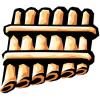
Straw Pipes
Source Institutions
Learners build pan pipes out of drinking straws by cutting them to different lengths. Then, learners make music by blowing across the straws and playing some well-known songs.
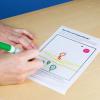
Exploring the Universe: Imagining Life
Source Institutions
“Exploring the Universe: Imagining Life” is a hands-on activity in which visitors imagine and draw an extreme environment beyond Earth, then invent a living thing that could thrive in it.

Train Your Brain
Source Institutions
In this activity, learners play a trick on their own brain to see if the brain can learn to ignore distracting input. Colors and words are used to play the visual trick, known as a Stroop Test.

Kaleidoscope
Source Institutions
In this activity, learners investigate the reflective properties of light and mirrors as they make a kaleidoscope.

I M O K. U R O K.: You Can Make Sentences Without Words!
Source Institutions
Can you read the sentence "I C U"? Not really - but if you say each letter aloud, you'll say the simple sentence, "I see you." What if you change the "C" into a picture of an eye?
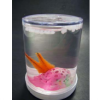
Coral Spawning Globe
Source Institutions
This activity models the mass coral spawning event that takes place at Flower Garden Banks National Marine Sanctuary every August.

Crazy Camouflage
Source Institutions
In this activity about camouflage, learners create a model that shows how a flounder is able to blend into a variety of environments.

Super Sounding Drum
Source Institutions
In this activity, learners construct drums out of everyday containers (like bowls or food containers) and shrink wrap. Learners use a hair dryer to affix and tighten the shrink wrap to the container.
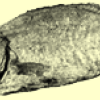
Make a "Mummy"
Source Institutions
The Ancient Egyptians used a naturally-occurring salt from the banks of the Nile River, called natron, to mummify their dead.
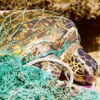
All Tangled Up
Source Institutions
In this activity on page 60, learners examine and simulate wildlife entanglement by experiencing what it might be like to be a marine animal trapped in debris.
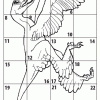
Smaller Than You Think
Source Institutions
Learners compare a life-size drawing of a Tyrannosaurus rex head and a full-size Sinornithosaurus body to understand that dinosaurs varied in size.

What Color is Your Air Today?
Learners develop awareness and understanding of the daily air quality using the Air Quality Index (AQI) listed in the newspaper or online.

Horton Senses Something Small
Source Institutions
In this story time program, young learners listen to the Dr.
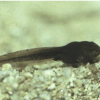
Life Story
Source Institutions
In this two-part activity, learners compare and contrast a variety of life cycles to better understand different organisms and how they develop.
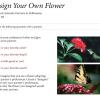
Design a Flower
Source Institutions
In this activity, learners learn about the adaptations that flowers have developed which support pollination. Learners also list their personal preferences (i.e.

Circulatory System Skit: Act out the Flow of Blood
Source Institutions
In this activity, learners act out the flow of blood in the human body! A great way to get learners up and moving while learning about the circulatory system.
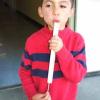
Slide Whistle
Source Institutions
In this activity, learners build a slide whistle using PVC pipe, bamboo skewer, and piece of foam. Construction of the instrument is relatively simple.
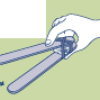
Eat Like a Bird
Source Institutions
Birds' beaks are designed to allow birds to get the most of whatever food they need. In this activity, learners get an idea of how different beak shapes suit different food sources.

Calcium Collage
Source Institutions
In this activity (on pages 11-14 of PDF), learners cut out pictures from magazines of foods that help make bones strong and glue the pictures to a paper bone.

Throw Your Weight Around
Source Institutions
During this activity, learners take part in a variety of tasks which involve moving and balancing different body parts.
